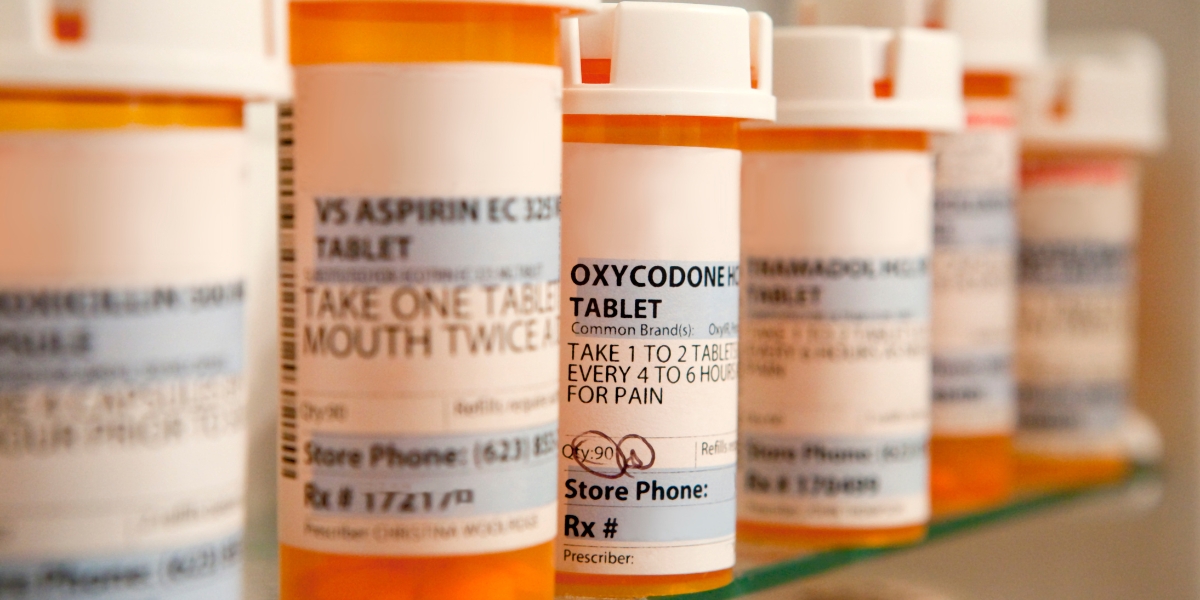Signs of Prescription Drug Abuse

Understanding Prescription Drug Addiction
Signs of prescription drug addiction can be challenging to recognize. Prescription drug addiction can happen to anyone; it can develop in patients taking prescription medication precisely as their doctor prescribed or people who have intentionally abused prescription drugs.
When patients develop substance use disorders alongside their chronic physical or mental illness, they are considered co-occurring disorders, which require a treatment approach addressing all aspects contributing to prescription drug addiction.
Regardless of how it begins, prescription drug addiction is common and complicated, especially in people who take prescription medication to treat a valid medical condition; and it is a growing problem in the United States.
While there is no guarantee of who will develop an addiction, some people are at a higher risk than others.
Risk factors include:
- Chronic illness
- Easy access to prescription medication
- Previous history of abusing drugs
- Family history of substance abuse
- Family or personal history of mental illness
- Unstable home life
- Social pressure
- Exposure to substance abuse at a young age
- Lack of a support system
Facts About Prescription Drug Abuse
The reality and facts about prescription drug abuse in the United States quickly disprove the myth that they are safe because a doctor prescribed them.
Prescription drug misuse isn’t always about getting high; sometimes, it starts with taking medication from a friend for pain or a patient taking higher doses because they’ve developed a physical tolerance.
Drug abuse also includes taking drugs in ways other than intended, like snorting, smoking, or injecting them, which increases the risk of becoming addicted.
The National Institute on Drug Abuse (NIDA) monitors prescription drug misuse and addiction nationwide to monitor trends and practical treatment approaches.
Below are some startling statistics and facts about prescription drug abuse in the year 2020:
- 75% of prescription drugs worldwide are consumed by 5% of the population in the United States
- 52 million people have abused prescription drugs in their lifetime
- 4.2 million people have a substance use disorder related to prescription drugs
- 2.3 million people have an opioid use disorder
- 1.2 million people have a sedative use disorder
- 758,000 people have a stimulant use disorder
- 34,303 people died from prescription drug overdoses, and over half of those deaths were from prescription opioids
- 14.1 million people abused prescription drugs in the past 12 months
- 6.1 million people abuse prescription drugs every month
- 52% of people got their drugs from friends or family members

Warning Signs of Prescription Drug Abuse
Warning signs of prescription drug use can be subtle, especially when a person has a medical condition or mental illness requiring medication. Still, addiction will have behavioral, physical, and psychological signs and symptoms.
Warning signs will vary depending on the person, the specific drug they are abusing, their biological makeup, and the severity of the addiction.
Behavioral warning signs and symptoms of prescription drug abuse include:
- Taking higher doses than prescribed
- Running out of prescriptions quickly
- Visiting multiple doctors to get prescriptions
- Stocking up on medication for fear of running out
- Asking friends and family members for their prescriptions
- Withdrawing from social life
- Changes in academic or professional performance
- Lying about taking medication
- Stealing from people to support their habit
Physical warning signs and symptoms of prescription drug abuse include:
- Changes in sleep patterns
- Appetite changes
- Weight gain or loss
- Extreme energy
- Fatigue
- Headache
- Dizziness
- Loss of muscle tone
- Lack of coordination
- Injection marks
- Burns around their hands and mouth from smoking
- Bloodshot eyes
- Changes in pupil size
- Constipation or diarrhea
- Grey or yellow skin
- Neglecting personal hygiene
- Sweating
- Shaking or tremors
- Changes in heartbeat
- Breathing changes
- Withdrawal symptoms when they don’t take medication
Psychological warning signs and symptoms of prescription drug abuse include:
- Confusion
- Disorientation
- Memory loss
- Trouble focusing
- Anxiety about obtaining more medication
- Depression
- Mood swings
- Poor judgment
- Irritability
- Making impulsive or risky decisions
Many people addicted to prescription medication are unaware of the changes they’re exhibiting or in denial. If you recognize these symptoms in yourself or your loved one, it might be time to have an honest conversation about seeking professional treatment.
NIDA sums up the behaviors as the components of drug addiction, or “3 Cs,” which are:
- Loss of Control
- Cravings for the drug
- Using despite harmful Consequences

Commonly Abused Prescription Drugs
The prescription drugs most commonly abused include opioids, sedatives, and stimulants. All three classes of medicines quickly lead to physical dependence, which is one of the main precursors to addiction.
Below is a brief overview of each type of prescription medication and how they affect the body.
Opioids
Opioid painkillers include oxycodone, hydrocodone, morphine, codeine, fentanyl, and others. Prescription opioids work throughout the central nervous system to relieve pain and produce feelings of relaxation and well-being.
People abuse opioids by taking higher doses, mixing them with other drugs and alcohol, crushing and snorting, smoking, or injecting them.
Sedatives
Sometimes called central nervous system (CSN) depressants, sedatives include anti-anxiety medications, benzodiazepines, barbiturates, and sleep medications. Sedatives work to alter and slow down brain activity to produce feelings of calm and drowsiness.
People abuse sedatives by taking higher doses, mixing them with other drugs or alcohol, crushing and snorting them, or injecting them, sometimes mixed with opioids.
Stimulants
Sometimes called cognitive enhancers, prescription stimulants include attention deficit hyperactivity disorder (ADHD) and narcolepsy medications like Adderall and Ritalin. Stimulants work to enhance the effects of specific chemicals in the brain to produce feelings of alertness and increased focus.
People abuse stimulants by taking higher doses, mixing them with other drugs and alcohol, crushing and snorting, smoking, or injecting them.
[Break]
Because all these drugs produce physical dependence, people will experience withdrawal symptoms that range from uncomfortable to life-threatening if they quit taking them.
You should always seek medical advice before you stop taking medication; in many cases, supervised medical detox is the safest option.
Long-Term Effects of Prescription Drug Addiction
The long-term effects of prescription drug addiction will vary based on co-occurring disorders, the specific prescription medication, and the person’s physical condition.
Long-term effects of prescription drug addiction include:
- Worsening mental health
- Physical dependence
- Cognitive impairment
- Chronic health issues
- Heart, lung, kidney, and liver damage
- Malnourishment
- Memory loss
- Unemployment
- Housing insecurity
- Loss of relationships
- Increased risk of sexually transmitted infections (STIs)
- Legal trouble
- Paranoia
- Hallucinations
- Depression
- Suicidal thoughts
- Anxiety
- Stroke
- Heart failure
- Seizures
- Coma
- Death
Most long-term complications from abusing drugs resolve with time and proper medical care, but overcoming addiction requires addressing more than just the physical damage. Seeking professional help offers the best chance of long-term recovery.

Prescription Drug Addiction Treatment
At Northridge Addiction Treatment Center, we understand that everybody has unique circumstances and needs. We specialize in customized plans for overcoming prescription drug addiction in a therapeutic, healing environment.
Our private residential facility in Northridge, California, offers onsite medical detox to ensure your safety during withdrawal with around-the-clock medical care and support.
We use research, evidence-based treatments, and therapies to address the root of your addiction, not just the symptoms. Our superior care ensures you learn the strategies and skills to build a solid foundation to maintain sobriety, overcome future challenges, and live free from addiction in meaningful recovery.
Our treatment specialists can confidentially and compassionately answer any questions. Reach out now to start on your path to lasting recovery.
Find Meaningful Recovery
Our caring and compassionate specialists are eager to help you comfortably navigate this journey to recovery. Our individualized treatment plan, programs, and therapies may be a perfect match for you or your loved one. Let us assist you in living the happy life you deserve. It starts with a phone call.




